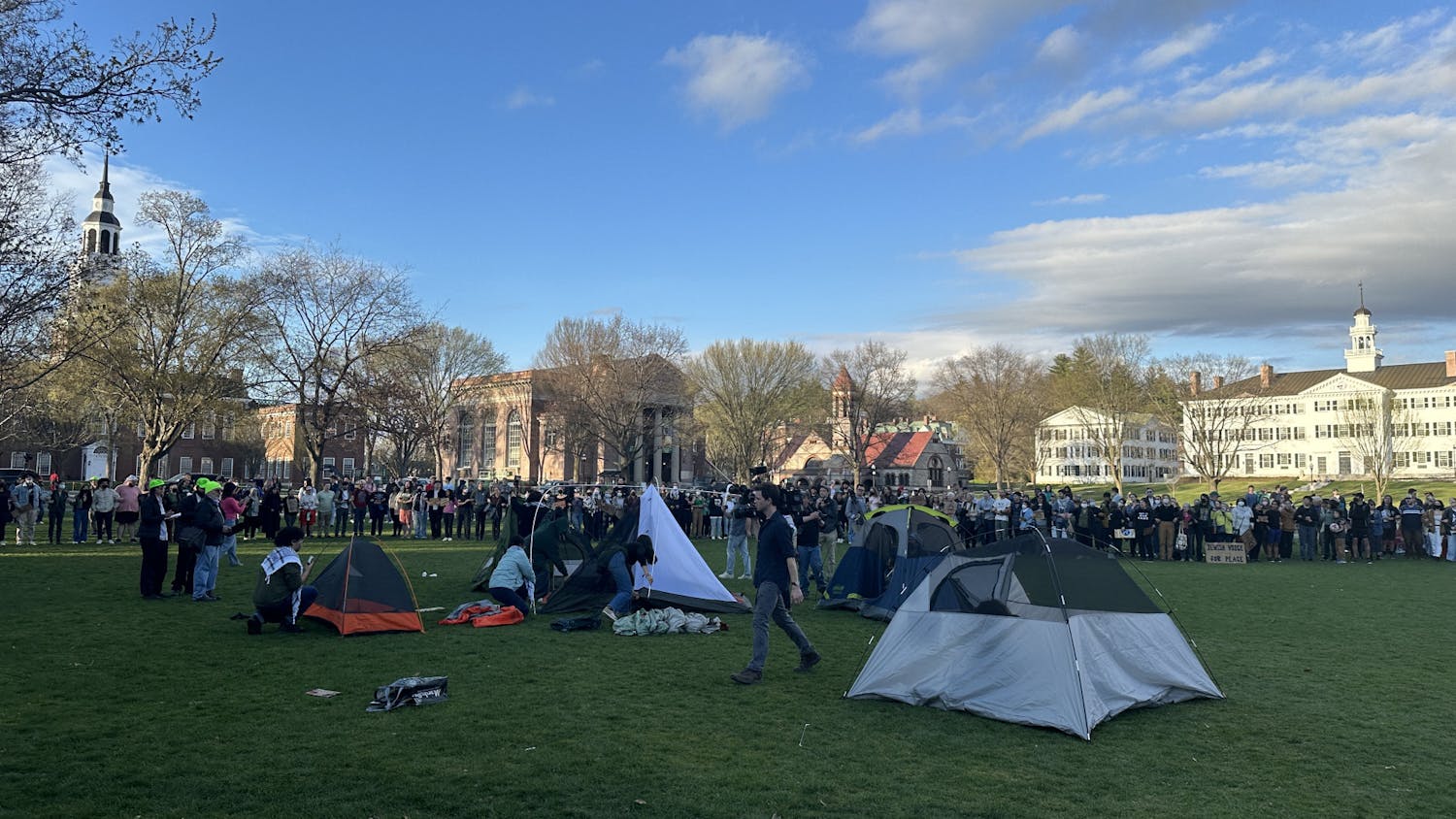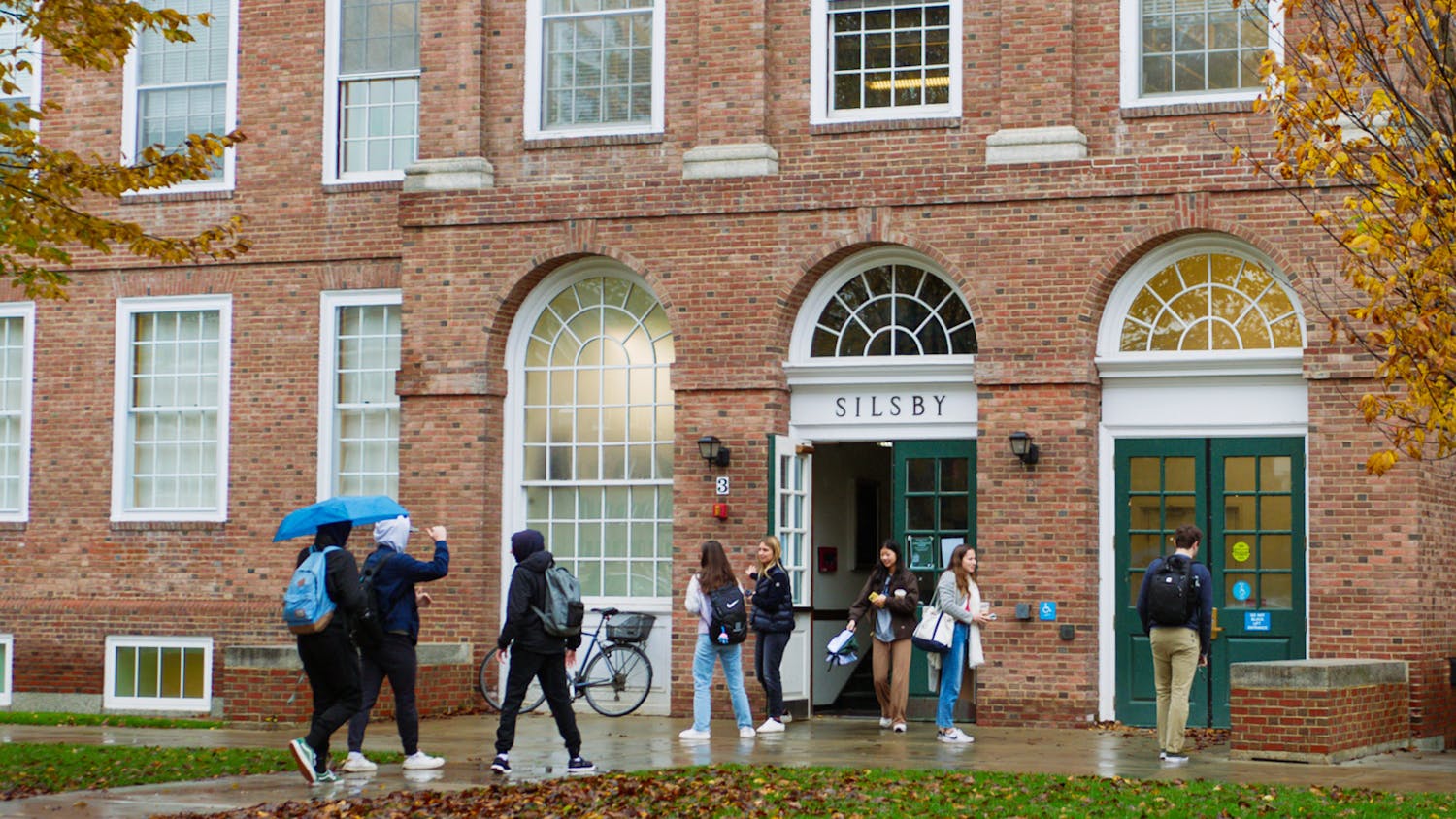Which sport did you start first?
ST: I started off in all three of them, actually. I was officially recruited for running, but I knew from talking to the coaches I was going to have a chance to ski here too.
How do you balance men's cross country, Nordic skiing and track?
ST: I generally don't find it too bad because I focus on one at a time. I don't get much of a break though. I usually only take a week or two off before each season, and in season you have to miss a lot of time for traveling and going to races. Especially during the winter, I'm away for four days during a lot of weeks. It's a lot of work talking to professors and making sure they know what I'm doing.
How difficult is it to transition between the two different sports?
ST: The main thing that I try to do is just jump right into the next sport. I don't do a lot of extra stuff. It makes for a really hard couple of weeks when you get really sore, but then you figure it out. Competition starts right after that, when I'm hopefully good to go.
Do you prefer one sport?
ST: Not really, that's why I stuck with all three. I have a hard time making up my mind. All three have different things that they offer and allow me to get off campus at different times of the year, which is something that I really like.
You've had a lot of great results this past year, finishing All-American at NCAAs for the Nordic team and placing at the outdoor track Heptagonal championships. What do you credit with the success?
ST: A lot of it had to do with getting a full year of training under my belt. I didn't train nearly as much at the running in high school, which took a little while to get used to. I also had mono going into freshman year, which set me back a bit. Overall, this year just kept going well and I carried over the momentum from one sport to the next.
You had an opportunity to travel to England with the Dartmouth and Brown cross-country teams a few weeks ago. Can you talk a little about that?
ST: I don't think I'll ever get to do another international trip like that again. We were in such a large group with 25 Dartmouth athletes and 25 Brown athletes, and it was cool getting to know their team. My favorite part was actually competing there, even though it was a month after our season had ended. A bunch of us weren't in our best shape, but it was fun competing in a completely different place against completely different people and getting to talk to athletes from England.
What was it like moving from one end of the country to the other, Anchorage to Hanover?
ST: I'd say there are two major things. The first one is the lack of mountains. It was weird because they are something that I had always grown up with, and here there are just a bunch of hills. And of course there's much less snow year-round, which took some getting used to. In the winter the ski team has to drive a lot to train and compete where at home I'm used to skiing to my door.
Do you have any pump-up routine for a big race?
ST: I don't know if I'm still notorious for this, but especially during track season, I'll get fed up with eating well. A couple of hours before a race, I'll go out and buy a really greasy hamburger or ribs or something like that. It's long enough before the race that it doesn't affect me, but still probably isn't something I should do. But the races when I've done it have turned out pretty well, so I guess I can't complain.



